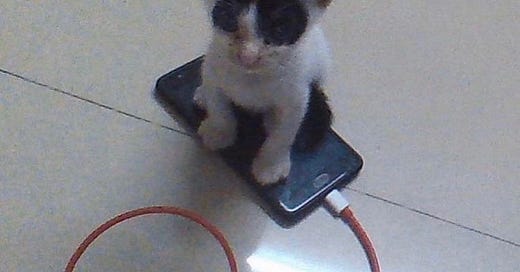Being surrounded by recording devices and devices that are constantly recording enables an agonizing observer effect in me that reinforces the dissociative programming I am already susceptible to. The teeth of the trap sink in, then loosen, then grind me to mush. It is easy for me to feel watched, surveilled, preconceived — and by extension, it is easy for me to feel unreal, cut-off, mechanized.
This sickens me because it means that I have lost, that the selflessness and thus helplessness and disconnectedness that the state wants me to feel has been established. This sickens me also because it feels like a betrayal of the lived-in moment. I curl like paper under a flame. I tape the cameras on my devices. I stop making online purchases. I turn location services off. I abandon social media.
These things don’t help, they only reinforce my paranoia further. I push against it. I pry its jaw open. I breathe in the world, sensitize myself to the atrocities and the beauty. The flame grows, pieces of me turn to ash and fall off. Never mind. I untape the cameras. I use the map and post a selfie. I talk to a stranger online. Whatever. I touch the grid, it doesn’t startle me. But if I leave the curtains open too long somebody could learn these cycles and…
Cut it out. Never mind. Kiss the flame and make the bed. I find an antidote in documentary: the work of others, lives assembled and accessed. Two days ago I cried for almost the whole duration of About Love, a documentary by Archana Phadke in which she interviews/follows members of her family in their everyday lives in their family home, the Phadke Building in South Bombay. On the drive to the house, Archana and her sister sing a song about the children of the Phadke Building; her sister says she would never want to live anywhere else.
Excruciating scenes of mundanity take place within the three-story (?) house: her father berating her mother over her organization of the family accounts in separate folders where he prefers that they be in a single folder; her younger brother preparing for his wedding dance performance with his to-be wife; everyone asking her again and again about when she will get married; her grandfather talking about the ghosts he sees every night, how they follow him into his dreams, how her grandmother sees them too but lies (behind him on the bed, her grandmother exclaims again and again that she doesn’t see them, she doesn’t).
At some point her grandfather’s brother is transferred onto a flimsy stretcher and carried down the stairs by a few men after an episode of facial paralysis; Phadke’s parents glow with joy as they later share that they have sent him away to a long-term care facility, which they happily declare he has no choice in. At some point her grandfather passes away. At some point her brother gets married. At no point do dynamics shift. The family’s domestic worker has always worked for them and seemingly always will. She looks almost as old as Phadke’s grandmother. Phadke’s mother laughs and laughs after one morning’s accounts — when Phadke asks her why, she says she is laughing at her own self, how she has let her life become like this. But it always has been and seemingly always will.
Sticky webs of caste, gender, patriarchy, ageism, ableism drape around the family. The mother puts her head down against the table and cries without making a sound. The father blow dries the TV to make it work every day instead of buying a new one. The domestic worker cleans the house but is never shown doing so. This is not just Phadke’s family it’s a common iteration of the family. It is familiar and painful and disturbing. It is “about love” but nobody knows what “love” is, only what roles they are supposed to play in its technology. All technology is a Means to an End. At least there is some solace in that.
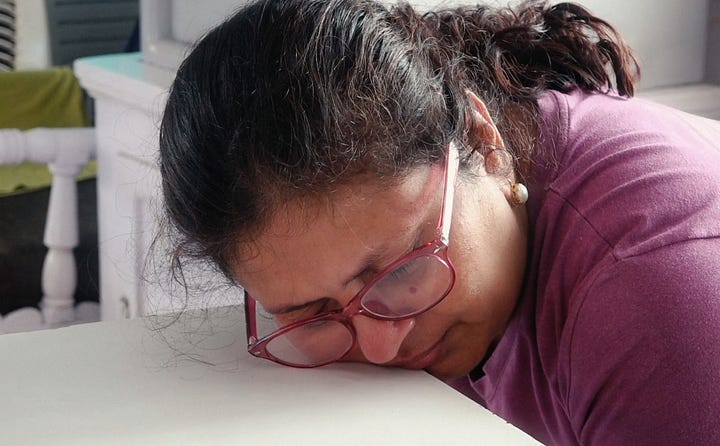
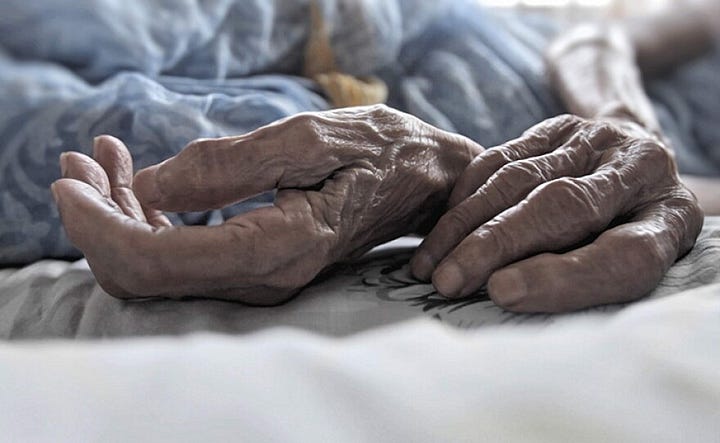
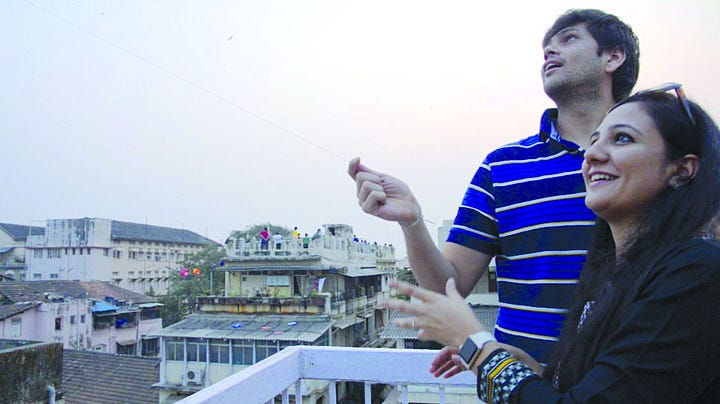
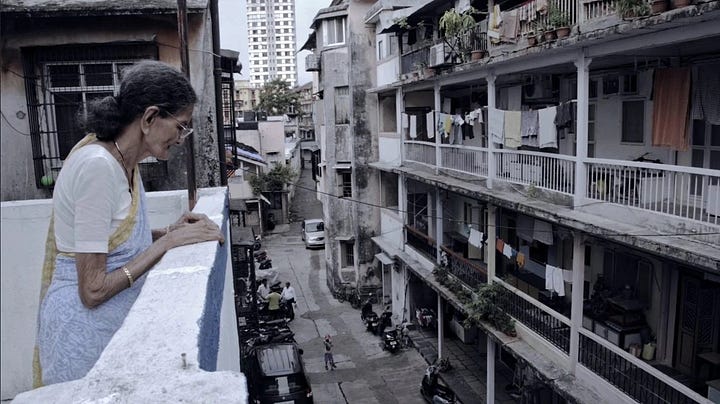
The act of intentionally watching and recording, the act of documentary, cuts through the sting of “taking from”, and instead feels like a “giving to”. It is the same as autobiography which is less a glass and more a mirror. I can see myself without anyone seeing me on the other side. I love that, I long for that, whatever medium I can find it in. The dream can serve as an adequate replacement sometimes. Sometimes to drive a narrow turn holding my breath and suddenly I am on the other side without having met with an accident.
Through About Love I remember my own family homes, my aunts and uncles and their tumultuous relationships, the secret sadness of my mother, the overt cruelty of my father. I remember the time I considered an arranged marriage with a distant relative. I remember my grandmothers’ hands. The flickering white tube lights of my childhood houses. The smell of my parents’ closets. There’s a softness and a harshness to these memories. I curl further into them.
When I think about love, there’s a sense of having been spared a future that was the direction I was set into. There’s a sense of having gotten lucky, spurred off the track, launched wildly into unfamiliar landscapes. There is an I and another I, two parallel lines with no end. In that sense to live is not a technology, not a means to an end, but an end in itself. There are endings everywhere in my life’s memories and in my screens. I try to pay attention to those intentionally captured and remembered, and mind less about the rest, and mind less about the ones I contribute to without knowing.
Yesterday I watched another documentary, Chaar Phool Hain Aur Duniya Hai directed by Achal Mishra, a short film talking to the Hindi writer Vinod Kumar Shukla and, briefly, his son. Their language is delicate and floaty, similar to the light dancing on the wall behind Shukla. There is a tree through which this light passes, but we never see the tree clearly, only speak of it intermittently and perceive parts of it through windows. Shukla says that we only write from one story our whole lives, which is the story of our life, in pieces through the years, and so it is important to keep dipping back into our past, enriching this story, writing it forever. I don’t know if I believe in this — there are so many lives, and so many stories — but it’s good to know that someone does.
And so language too, like light, passes through, dancing, floating, a touch of the lived-in moment, an unfixed document, an I and an I so close that I forget they are separate.
A fragment of a poem to end with jittery and perfect:
“A new obsession. How to get out”
By Sandra Simonds
[...] Every night for a week I dream
of my car ending up in a body
of water. If I’m not driving, someone
else is. Bob, the neighbor.
My new paranoia.
I Google how to escape a car
filling with water. I watch videos
on YouTube. I memorize the steps
of what to do if this happens. First,
you take your seat belt off. Late at night,
I read pages and pages on the internet.
What if the car lands
in the water flipped over?
Remember to stay calm.
If you panic, you will die.
News story about a woman who drives
her minivan into the ocean on purpose.
Horrified beachgoers run toward the water.
The two kids are strapped in the back seat.
One of the kids is screaming “No, mommy” —
What about the sunroof?
What if you land in the water
and your car has a sunroof?
My new car has a sunroof. [...]
full poem here — do read if you can, it ends beautifully. xoxo

